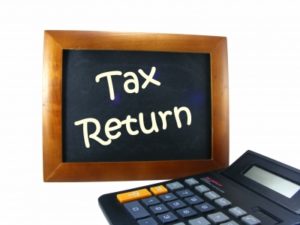As the Financial year 2017-18 ended on 31st March, 2018, Income Tax and Return filing are creating a buzz. Let us try to understand these terms quickly in simple manner.
- Income Tax: It is the tax payable on the income earned by the assessee. Various provisions of Taxes on Income are enacted through Income Tax Act, 1961.
- Assessee: Assessee, under Income Tax Act, means a person by whom income tax or any other sum of money is payable under the Act.
- Person, under Income Tax Act, includes:
- Individual
- Hindu Undivided Family
- Firm
- Association of Persons (AOP)/ Body of Individuals (BOI)
- Company
- Local Authorities
- Every Artificial Juridical person not falling within any of the preceding categories.
- Income:
A person’s income is computed under following heads:
- Income from Salary
- Income from House Property i.e. Rent
- Profits/ Gains of Business or Profession i.e. Business Income
- Capital Gains i.e. gains from sale of shares, house, assets etc.
- Income from Other sources i.e. dividends, interest etc.
Every year, in the budget, Government decides tax rates for each Assessment Year. Tax rates for the Assessment Year (A.Y.) 2018-19 i.e. Financial Year (F.Y.) 2017-18 for Individuals are given below:
| Net Income Range | Income Tax Rates | Surcharge | Education Cess | Secondary and Higher Education Cess |
| Up to INR 2,50,000# | NIL | NIL | NIL | NIL |
| INR 2,50,000-INR 5,00,000 | 5% of (Total Income – INR 2,50,000) | NIL | 2% of Income Tax | 1% of Income Tax |
| INR 5,00,000- INR 10,00,000 | INR 12,500+20% of (Total Income – INR 5,00,000) | NIL | 2% of Income Tax | 1% of Income Tax |
| INR 10,00,000 – INR 50,00,000 | INR 1,12,500 + 30% of (Total Income – INR 10,00,000) | NIL | 2% of Income Tax | 1% of Income Tax |
| INR 50,00,000 – INR 100,00,000 | INR 13,12,500 + 30% of (Total Income – INR 50,00,000) | 10% of Income Tax | 2% of Income Tax and surcharge | 1% of Income Tax and surcharge |
| Above INR 100,00,000 | INR 28,12,500 + 30% of (Total Income – INR 100,00,000) | 15% of Income Tax | 2% of Income Tax and surcharge | 1% of Income Tax and surcharge |
# For resident senior citizen (who is 60 years or more at any time during the previous year but less than 80 years on the last day of the previous year, basic exemption limit is INR 3,00,000/- instead of INR 2,50,000/- .
# For a super senior resident citizen (who is 80 years or more at any time during the previous year, the basic exemption limit is INR 5, 00,000/-.
Income Tax Return Filing:

Every taxpayer is required to furnish his or her Return of Income if the person’s gross taxable income of all heads before claiming exemptions is more than the basic exemption limit for the relevant assessment year.
For an individual, under the Income Tax Act, it is essential to file Income tax return when the gross total income (before allowing any deductions under section 80C and 80U) exceeds the basic exemption limit.
However, some of us do not prefer filing of income tax returns.
Benefits of filing Income Tax Return:
- Tax Refund:
Sometimes Tax is deducted at source when the income from particular investment/ source exceeds the specified limit.
E.g. some taxpayers may be investing through fixed deposit. Tax is deducted at source (TDS) at specified rate on such Investments, .
If the individual’s total taxable income is less than the basic exemption limit, he/she can file Tax returns and claim the refund. You will have to forgo the refund if you do not file returns.
- Carry forward of losses:
One will not be able to carry forward capital losses (short-term or long-term), if any, in a financial year to be adjusted against capital gains made in the subsequent years, if his Tax returns are not filed.
- Revised Returns:
If there is an error while filing the original income tax return, the same can be rectified through Revised Return.
However Revised Return can be filed only if the original return has been filed before the due date.
- Easy processing of loan:
When individuals want to apply for a vehicle loan (two-wheeler or four-wheeler) or Home Loan, all major banks ask for a copy of Income tax returns.
- Foreign Travel and Visa processing:
If you are traveling overseas, foreign consulates ask you to furnish ITR receipt of the last couple of years at the time of the visa interview. Some embassies may ask for ITR receipts of previous three years, while some others may ask for the most recent certificate.
Producing ITR receipts show that one has some source of income in India thus, strengthening your case as someone who will not leave the country for good but will return.
- Buying a high life risk cover:
Buying life cover of say INR 50 Lakhs or INR 1 Crore has become common. However, these covers are available against your ITR documents to verify annual income.
Life insurance companies ask for ITR receipts these days if one opts to buy a term policy with sum insured of INR 50 Lakh or more. The sum insured one can get with a term cover depends on many factors one of which is the income of the insured.
- Self-employed:
Businessmen, consultants and partners of firms do not get Form 16. Hence, ITR receipts become an even more important document for them, provided their annual income exceeds the basic exemption limit of INR 2.50 lakh.
For all sorts of financial transactions, ITR receipts will be the only proof of income and tax payment for the self-employed.
Important Amendments relating to Income Tax Return Filing applicable from Financial Year (F.Y.) 2017-18 (i.e. A.Y. 2018-19):
The Income Tax Return from Financial Year 2017-18 has to be filed within a period of one year from the completion of financial year.
E.g. For Financial Year ending 31/03/2018 the last date to file return is 31/03/2019.
Fees payable for late filing of the income tax return (Section 234F):
The last dates of return filing are as follows:
- 31st July for all individuals without audit and
- 30th September for other assessees.
If one files the return after due date but before 31st December of relevant Assessment Year (i.e. by 31st December 2018 for A.Y. 2018-19), then late filing fees of INR 5,000/- will be mandatorily levied.
If he files the return after 31st December of the relevant Assessment Year ((i.e. by 31st December 2018 for A.Y. 2018-19), late fees of INR 10,000/- will be levied.
The late fees is restricted to INR 1,000/- for assesses having income below INR 5,00,000/- after deduction.
| Particulars | Late Filing Fees (Penalty) INR |
| Return is filed on or before 31st December of the relevant Assessment Year but after due date and total Income exceeds INR 5 Lakh. | 5,000/- |
| Return is filed on or before 31st December of the relevant Assessment Year but after due date and total Income does not exceed INR 5 Lakh. | 1,000/- |
| In any other case i.e. Return filed after due date and after 31st December of the relevant Assessment Year. | 10,000/- |

It’s time to get ready for Income Tax return filing for Assessment Year 2018-19. Punctual and active Taxpayers can definitely avoid Late filing fees with their timely filing of Income Tax Returns.
